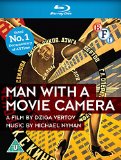![Judy [Blu-ray] [2019]](/pictures/1150528.jpg) Judy | Blu Ray | (03/02/2020)
from £8.95
| Saving you £N/A (N/A%)
| RRP
Judy | Blu Ray | (03/02/2020)
from £8.95
| Saving you £N/A (N/A%)
| RRP Winter 1968 and showbiz legend Judy Garland arrives in Swinging London to perform in a sell-out run at The Talk of the Town. It is 30 years since she shot to global stardom in THE WIZARD OF OZ, but if her voice has weakened, its dramatic intensity has only grown. As she prepares for the show, battles with management, charms musicians, and reminisces with friends and adoring fans, her wit and warmth shine through. Even her dreams of romance seem undimmed as she embarks on a courtship with Mickey Deans, her soon-to-be fifth husband. And yet Judy is fragile. After working for 45 of her 47 years, she is exhausted; haunted by memories of a childhood lost to Hollywood; gripped by a desire to be back home with her kids. Will she have the strength to go on? Featuring some of her best-known songs, the film celebrates the voice, the capacity for love and the sheer pizzazz of the world's greatest entertainer.
![Judy [DVD] [2019]](/pictures/1150455.jpg) Judy | DVD | (03/02/2020)
from £6.05
| Saving you £N/A (N/A%)
| RRP
Judy | DVD | (03/02/2020)
from £6.05
| Saving you £N/A (N/A%)
| RRP Winter 1968 and showbiz legend Judy Garland arrives in Swinging London to perform in a sell-out run at The Talk of the Town. It is 30 years since she shot to global stardom in THE WIZARD OF OZ, but if her voice has weakened, its dramatic intensity has only grown. As she prepares for the show, battles with management, charms musicians, and reminisces with friends and adoring fans, her wit and warmth shine through. Even her dreams of romance seem undimmed as she embarks on a courtship with Mickey Deans, her soon-to-be fifth husband. And yet Judy is fragile. After working for 45 of her 47 years, she is exhausted; haunted by memories of a childhood lost to Hollywood; gripped by a desire to be back home with her kids. Will she have the strength to go on? Featuring some of her best-known songs, the film celebrates the voice, the capacity for love and the sheer pizzazz of the world's greatest entertainer.
 Man With a Movie Camera (Blu-ray) | Blu Ray | (27/07/2015)
from £18.23
| Saving you £3.52 (21.37%)
| RRP
Man With a Movie Camera (Blu-ray) | Blu Ray | (27/07/2015)
from £18.23
| Saving you £3.52 (21.37%)
| RRP "An experiment in the creative communication of visible events without the aid of inter-titles, a scenario or theatre "aiming at creating a truly international absolute language of cinema," is how the inter-titles describe what is about to be seen. Bold claims indeed, but in its awesome sophistication The Man with a Movie Camera does live up to them, making it one of the most contemporary of silent movies. The subject, the life of a city from dawn to dusk, was not original even for 1928, but its treatment was--the cameraman as voyeur, social commentator and prankster, exploiting every trick permissible with the technology of the day (slow motion, dissolves, split screens, freeze frames, stop motion animation, etc). A young woman stirs in her bed, apparently fighting a nightmare in which a cameraman is about to be crushed by an oncoming train. She wakes up, and the sequence is revealed to be a simple trick shot. As she blinks her weary eyes, the shutters of her window mimic her viewpoint, and the iris of the camera spins open. Self-reflexive wit like this abounds here--there's even a delicious counterpoint made between the splicing of film and the painting of a woman's nails.The film was the brainchild of the Moscow-based film-maker Dziga Vertov (real name Denis Arkadyevich Kaufman), a furiously inventive poet of the cinema who made innumerable shorts about daily life (such as the much-quoted "Kino-Pravda"), and played at candid camerawork and cinema vérité long before they became the clichés of the television age. The editing has a fantastic abandon that makes most pop videos look sluggish. --David Thompson
![Ute Lemper Sings Kurt Weill [1992]](/pictures/1026678.jpg) Ute Lemper Sings Kurt Weill | DVD | (03/03/2003)
from £N/A
| Saving you £N/A (N/A%)
| RRP
Ute Lemper Sings Kurt Weill | DVD | (03/03/2003)
from £N/A
| Saving you £N/A (N/A%)
| RRP Ute Lemper sings Kurt Weill live at the Bouffes du Nord Paris and Ute Lemper sings Michael Nyman at the Musikhalle Hamburg. Tracks include: Le Grand Lustucru Train Du Ciel I'm A Stranger Here Myself Bilbao Song Die Rote Rosa Complainte De La Seine Barbara Song Moritat Vom Mackie Messer Surabaya-Johnny Alabama Song Denn Wie Man Sich Bettet Youkali / Tango Habanera Je Ne T'aime Pas J'attends Un Navire The Saga Of Jenny September Song Tchaikovsky Trouble Man My Ship

Please wait. Loading...
This site uses cookies.
More details in our privacy policy